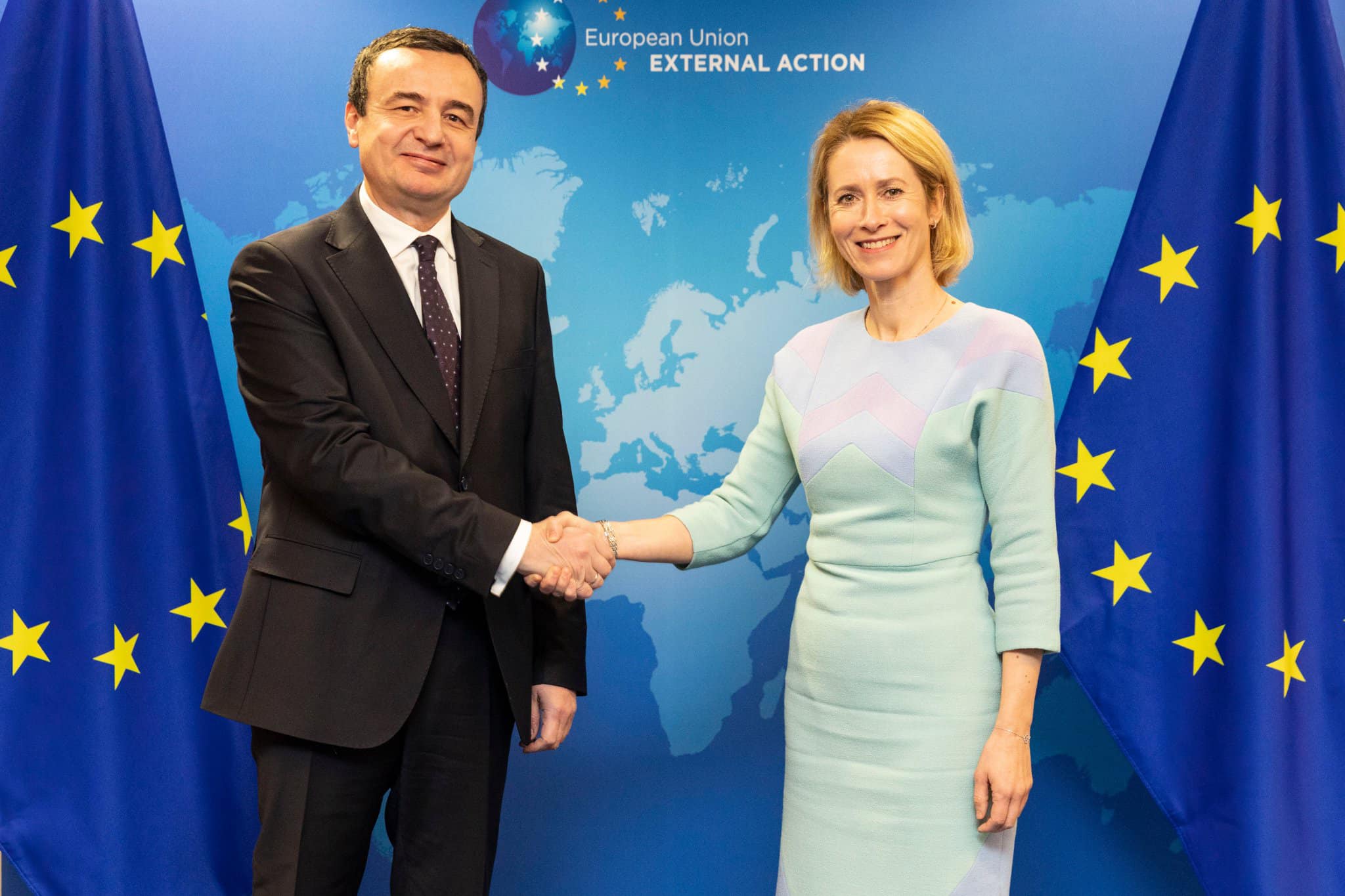EU’s Kallas mediates Kosovo-Serbia talks amid heightened tensions

The new High Representative of the European Union for Foreign Affairs and Security Policy, Kaja Kallas, held separate meetings on Tuesday with Kosovo’s Prime Minister Albin Kurti and Serbia’s President Aleksandar Vučić to discuss the normalization of relations between the two nations. Central issues included Serbia’s refusal to extradite Milan Radoičić, accused of orchestrating the 2023 Banjskë attack, and the recent explosion at Kosovo’s Ibër-Lepenc canal.
Kallas emphasized that normalization remains the only path to EU membership for both countries, urging both leaders to address unresolved issues and commit to dialogue.
Why is this important: The EU faces increasing scrutiny over its ability to mediate effectively between Kosovo and Serbia. With persistent tensions and Serbia’s hesitance to comply with key agreements, the credibility of the EU’s enlargement strategy is at stake. Observers argue that Brussels must adopt a firmer stance to enforce commitments and promote regional stability.
Kosovo’s position: Prime Minister Kurti reiterated Kosovo’s call for Serbia to extradite Milan Radoičić, who has admitted responsibility for leading the armed attack in Banjskë in September 2023, which left a Kosovo police officer dead. Kurti emphasized that Serbia’s protection of Radoičić undermines justice and fosters criminal networks destabilizing the region.
Kurti also briefed Kallas on the November 29 explosion at the Ibër-Lepenc canal, which Kosovo has linked to Serbian actors with alleged Russian involvement. Evidence presented included confiscated weaponry and military materials, with some bearing Russian insignias. “This is part of a broader campaign to undermine Kosovo’s sovereignty,” Kurti said.
The prime minister underscored Kosovo’s commitment to the 2023 Agreement on the Path to Normalization and urged the EU to ensure Serbia fulfills its obligations under the pact. He also called for the removal of punitive measures imposed on Kosovo by the EU earlier this year.
Serbia’s position: President Vučić denied any Serbian involvement in the Ibër-Lepenc explosion and expressed willingness to cooperate with international investigations. “If any Serbian national is found responsible and within our jurisdiction, they will be arrested immediately,” Vučić stated.
However, Vučić dismissed Kosovo’s allegations as politically motivated provocations. On the topic of sanctions against Russia, Vučić reiterated Serbia’s refusal to align with EU foreign policy, citing historical ties and national interests. He described his meeting with Kallas as “open and difficult.”
EU’s role: In her first major diplomatic engagement, Kallas reaffirmed the EU’s commitment to mediating the Kosovo-Serbia dialogue. She emphasized the importance of resolving issues such as the Banjskë attack and the recent canal explosion, calling for justice and adherence to the Ohrid Agreement.
However, critics have called for the EU to adopt a firmer approach, particularly with Serbia. The EU’s failure to secure significant progress on accountability and alignment with EU foreign policy has raised concerns about its ability to act as an effective mediator. Analysts argue that Brussels must demand Serbia extradite Radoičić, comply with normalization agreements, and impose sanctions on Russia to uphold EU values and regional stability.
What’s next: Both Kurti and Vučić are set to continue discussions with European Council President Antonio Costa and other regional leaders at a formal dinner on December 3. As the EU intensifies its mediation efforts, it faces the challenge of balancing dialogue with accountability to ensure lasting peace and integration in the Western Balkans.


